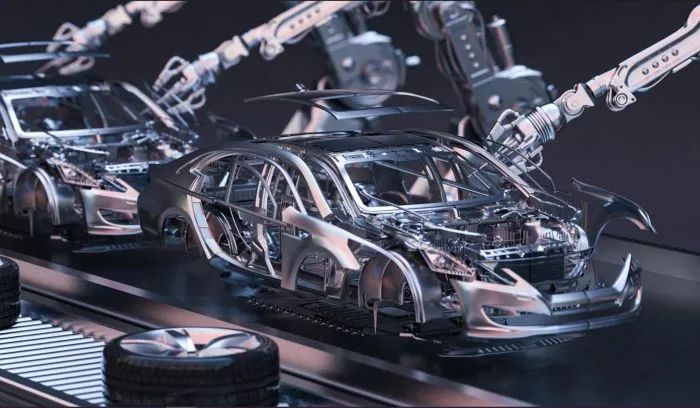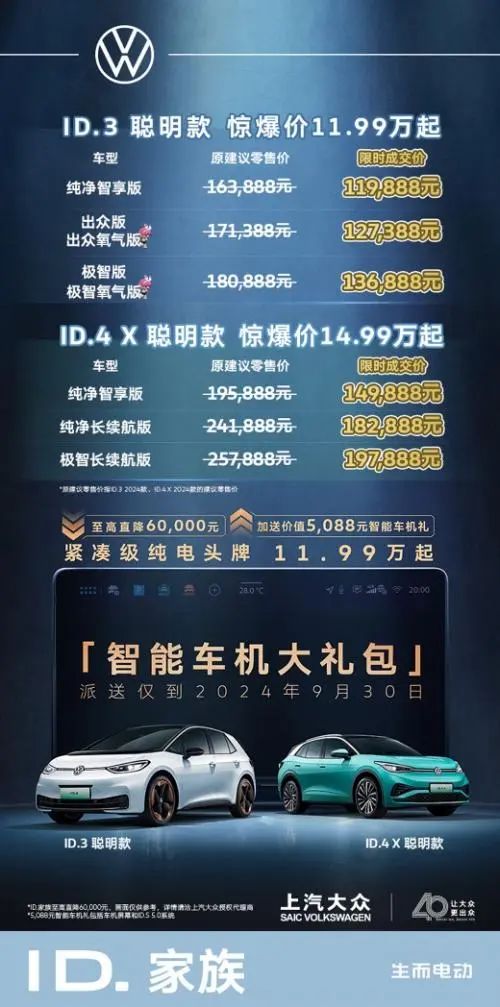Author: Zheng Zhiwen Editor: Wu Xiaoyu Source: Shetu Network New leaders often bring change. Within a month of taking office, Tao Hailong, the new general manager of SAIC Volkswagen, focused on cost reduction. At mid-year, SAIC Volkswagen reassessed its cost optimization potential for 2024. The company plans to optimize over 2 billion yuan in structural costs. Development licensing fees will drive the optimization. These fees account for nearly 60% of the estimated total. They represent costs for using intellectual property, like patents and trademarks. As a joint venture, SAIC Volkswagen must pay Volkswagen Germany these fees. Next, the company will optimize sales and personnel costs. These account for 18% and 8% of the estimated total, respectively. This means SAIC Volkswagen will further improve labor efficiency. Twenty-two days ago, SAIC Group announced that President Jia Jianxu would no longer serve as general manager of SAIC Volkswagen. Tao Hailong, former general manager of Huayu Automotive Systems Co., Ltd., took over the role. Like his predecessor, Tao has extensive experience in the automotive parts industry. He understands supply chain operations well. Having started in quality assurance and manufacturing at SAIC Volkswagen, he has rich experience in vehicle production. ID.3 prices dropped significantly. The price war is essentially a battle of costs. Since last July, SAIC Volkswagen has cut ID.3 prices officially, with some regions seeing reductions over 40,000 yuan (5570$). The starting price even fell below 120,000 yuan (16720$). This bold decision came with high costs but yielded strong results. Jia Jianxu revealed that before the price cut, the loss per ID.3 was 27,000 yuan (3760$). After the cut, the loss increased to over 40,000 yuan (5570$) per vehicle. However, this promotion turned around sales for SAIC Volkswagen’s new energy vehicles. Sales surged in the second half of last year, with monthly sales in the fourth quarter exceeding 10,000 units.
Insiders reveal that the ID series still operates at a loss. The planned switch to lithium iron phosphate batteries in the first quarter has been delayed due to technical validation issues. Beyond cost reduction, the company aims to increase efficiency. Jia Jianxu proposed the “nine-character policy” of “promote gasoline vehicles, stabilize electric vehicles, and launch Audi.” This reflects a focus on efficiency. For example, SAIC and Audi jointly developed a new “intelligent digital platform.” This platform can shorten the product launch cycle by over 30%. In gasoline vehicles, the Tiguan L Pro features the IQ Pilot intelligent driving assistance system, developed through deep cooperation between SAIC Volkswagen and DJI. Chinese companies lead in intelligence, and SAIC Volkswagen has good reasons to choose DJI. According to insiders, collaborating with DJI can reduce hardware costs by about 6,000 to 7,000 yuan (980$) and offers high compatibility. This presents a significant challenge. The task is to turn around SAIC Volkswagen’s performance. The financial report shows that in 2023, SAIC Volkswagen sold 1.215 million vehicles, an 8.01% decline year-on-year. Total revenue reached 140.28 billion yuan, down 14.8%. Net profit fell to 3.13 billion yuan, a 64% drop. What challenges await Tao Hailong, Jia Jianxu’s successor? Though a veteran of SAIC Group, Tao Hailong remains low-key and pragmatic. Upon taking office, he went to the R&D department to test vehicles himself. Insiders describe him as a “technical and engineering man.” Tao Hailong, born in 1968, is a senior engineer. He has over thirty years of experience in the automotive industry. He started at SAIC Volkswagen in the quality assurance and manufacturing departments. He later became the executive director and deputy general manager of the quality assurance department at SAIC Group’s passenger car division. He established a global quality standard system for domestic brands. After that, Tao Hailong entered the parts supply chain field. He became the general manager of Shanghai Automotive Transmission Co., Ltd. and the general manager of Huayu Automotive. His background in the supply chain is similar to Jia Jianxu’s experience at Yanfeng. Cost reduction and efficiency improvement ensure healthy business operations. As the automotive industry becomes highly competitive, companies prefer leaders with supply chain management experience. These leaders understand parts costs and can avoid waste during product development. Earlier this year, SAIC Group announced that Wang Jun would take over as general manager of SAIC Passenger Vehicle Division and CEO of Feifan Automotive. Wang Jun also came from Huayu Automotive. Wang Fengying, who became president of Xiaopeng Motors last year, is also well-versed in supply chain management. Even Francesco Scardaoni, general manager of Lamborghini China, spent five years in the parts department before coming to China. Tao Hailong’s arrival signals that cost reduction and efficiency will remain key themes at SAIC Volkswagen. However, Tao Hailong, who understands production and supply chains, must also focus on technological innovation. Reducing costs through technology is the long-term solution. Currently, SAIC Volkswagen faces high turnover rates among R&D personnel. An employee told reporters, “The compensation is poor, and there is much internal friction.”
“Without sales, how can we discuss cost reduction? As scale increases, costs naturally decrease,” said Li Xiang, CEO of Ideal. Currently, Taohailong must address how to break through existing sales bottlenecks. After a price adjustment, the ID. series struggles to match last year’s monthly sales. Monthly sales have dropped to 6,000 to 7,000 vehicles. It also faces competition from Volkswagen’s new ID. series in Anhui. The new PHEV and Audi’s electric products won’t launch until 2025. The Tiguan L Pro hasn’t delivered new growth for SAIC Volkswagen. Including the Tiguan L Pro, the latest monthly sales of the Tiguan L are under 10,000. The path for “stable fuel vehicles” is long and challenging. SAIC Volkswagen’s sales currently hit a bottleneck. The cost reduction space in production and supply is very limited. Taohailong must maintain market share and protect profits. Externally, competition is fierce; internally, he must stabilize confidence. “Tech-savvy” Taohailong cannot afford to be anxious. SFC Editor: Jiang Peipei. Recommended reading: After 550 days of price wars, BMW exits first! Mercedes, Audi, Honda, and others face price hikes. BBA is set to withdraw from the “price war.” Several brands follow suit. July’s car market remains relatively quiet: both production and sales decline month-on-month, while hybrid models grow faster than pure electric ones.

